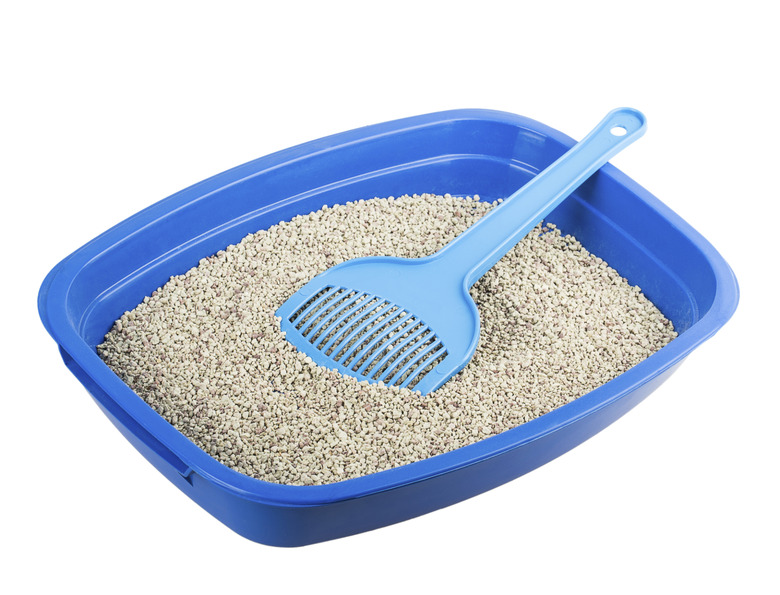Cat Hemorrhoid Treatments
While cats don't develop distended vein hemorrhoids in the same way humans do, they can experience similar medical conditions with similar symptoms. The most common are rectal or anal prolapse, an anal sac disorder or a digestive problem. As soon as you notice telltale signs and symptoms, it's time to take your kitty to the vet for a full exam.
Symptoms of Rectal Problems
Symptoms of Rectal Problems
If your cat strains while using the litter box to defecate, or cries when he tries to evacuate his bowels, it's a sign that something is amiss. Your cat may drag his bottom or lick his rectum excessively and likely will shy away from your touch. Blood in the stool is a key indicator of anal and rectal problems, as is seeing fleshy material protruding from your cat's behind. In a partial prolapse, tissue may be visible only while straining, while a complete prolapse will continue to protrude even after your kitty leaves the box. Left untreated, the flesh can turn black or blue, which often leads cat owners to assume their cat has hemorrhoids.
Diagnosis and Treatment
Diagnosis and Treatment
Your vet likely will perform a visual exam as well as palpate your cat's rectal region to identify the problem. Anal gland infections or impactions often require expressing and antibiotic treatment. If your cat is experiencing a rectal or anal prolapse, your vet likely will sedate your cat and manually put the tissue back in place. In some instances, a few stitches may be recommended to keep the tissue from coming out again.
Other Medical Issues
Other Medical Issues
Other physical problems that present with hemorrhoid or anal disorder symptoms include digestive disorders, intestinal inflammation, constipation or rectal tumors or kidney/bladder conditions. Some types of parasites and polyps also can create similar symptoms. Your vet may recommend blood tests, fecal and urine sample analysis or X-rays or ultrasounds to pinpoint the exact problem.
At-Home Care
At-Home Care
Your vet likely will recommend a fibrous, soft diet for your cat and possibly a stool softener to make defecation easier. Your cat may be prescribed anti-inflammatory medication or a topical cream to help reduce pain, swelling and itching. If your cat experiences ongoing anal gland problems, it may be worthwhile to learn how to express your cat's glands at home, or talk to your vet about surgical options to prevent future problems.
Always check with your veterinarian before changing your pet's diet, medication, or physical activity routines. This information is not a substitute for a vet's opinion.
